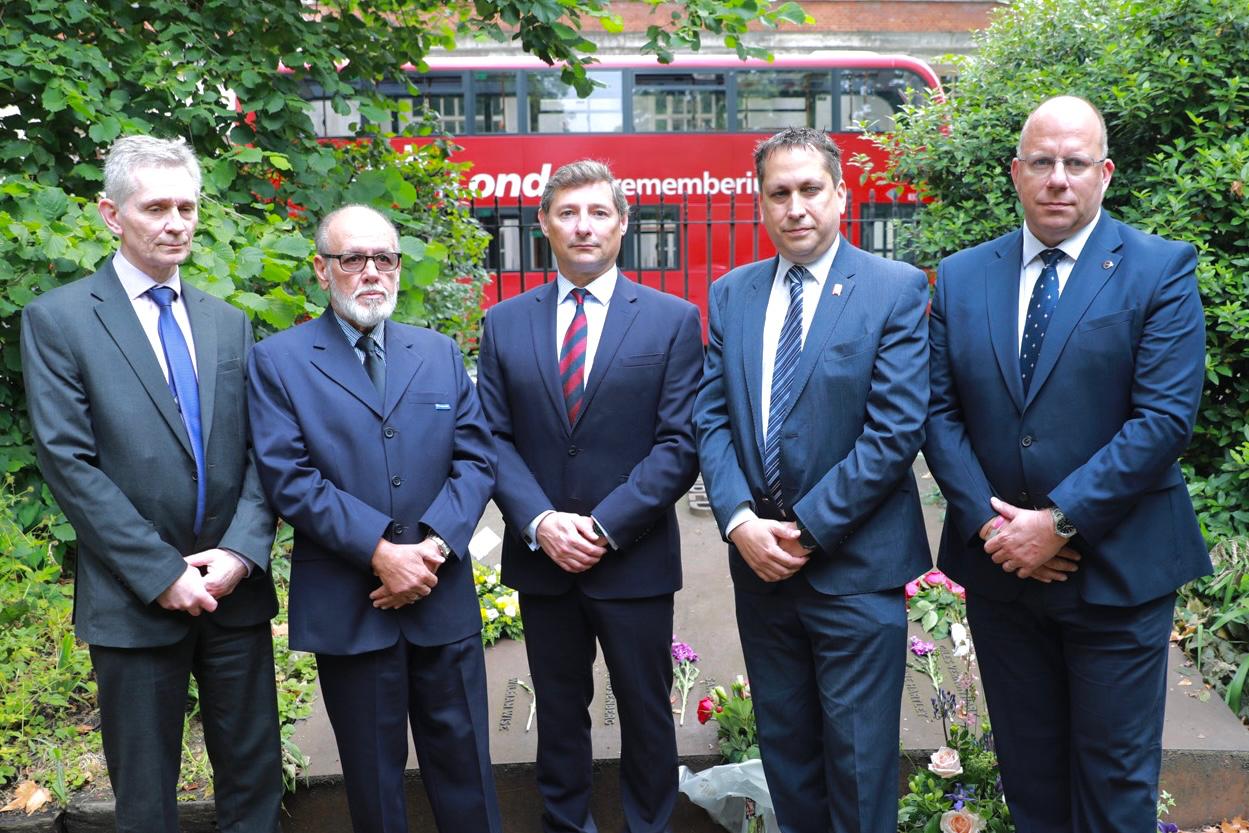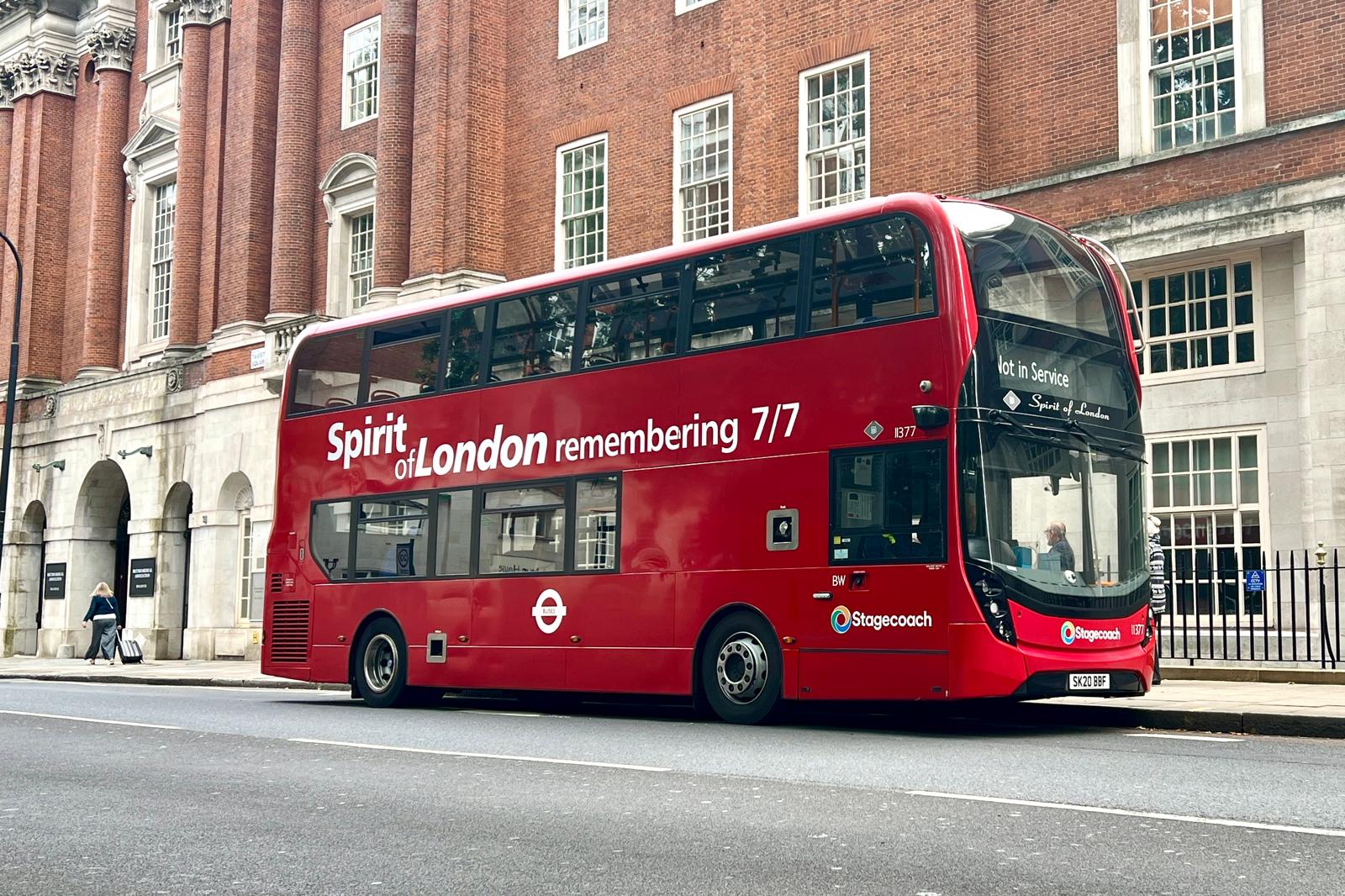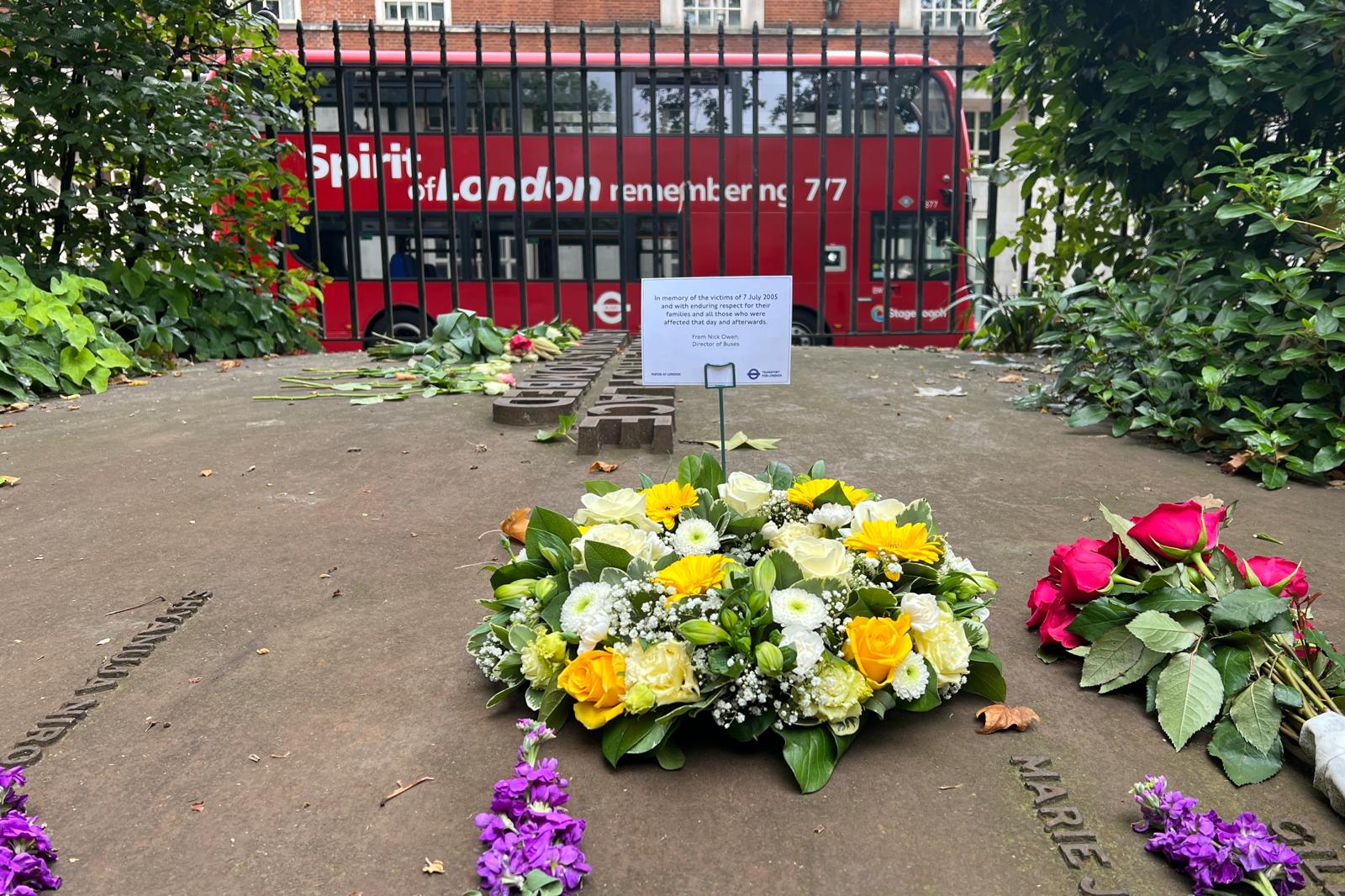John Gulliver: 7/7 hero explains how he still has ‘survivor guilt’
Sam Orwin was one of the first on the scene at Tavistock Square
Wednesday, 17th July 2024 — By John Gulliver

Sam Orwin, centre, joined those paying their respects on 7/7 anniversary [all pics SIMON LAMROCK]
SAM Orwin was one of the first to rush to the scene of the 7/7 terrorist attack on the No 30 bus in Tavistock Square, 19 years ago this week.
After 10 years in the army, serving in Europe and Northern Ireland, before leaving as a major, he was working for a project management firm in the nearby Lynton House.
He helped treat 25 casualties and man a first-aid station, later being recognised with a special police award for saving lives on that terrifying morning of July 7, 2005.
Mr Orwin, who was joined by emergency service workers and relatives at an anniversary event on Sunday, told me about his lasting feelings of “survivor guilt” but also a sense of “karma” after a serendipitous end to his heroic story.
A close friendship he forged with the parents of a young woman he helped save from the wreckage of the bus went on to play a crucial role in securing the best possible surgeon to care for his own daughter, who was recovering this week from a series of complex spinal operations.
Mr Orwin told me: “The last casualty I pulled from the bus was the closest living survivor to the [suicide] bomber.
“She had been blown through the buckled upstairs floor plate to the bottom of the bus and was buried with extensive blast injuries.
“The bomb had in it what we called in the army ‘shipyard confetti’, nuts and bolts. She had bits of metalwork sticking out of her body.
“Her parents became friends and ended up recommending the surgeon that has performed the last three operations on my daughter who has a rare form of scoliosis. I like to think that is karma.”

Across the capital, 52 died as suicide bombers blew up Tube trains and buses – including 13 people in Tavistock Square and 26 at King’s Cross.
The Met’s counter-terror teams were seriously short-staffed as many officers were sent to the G7 conference in Gleneagles that morning.
No doubt many of us have questioned what we would do if faced with a major emergency such as a terrorist attack. Few I suspect would dash out of their office building so readily to help.
But Mr Orwin had been here before. He had served in Yugoslavia during that bloody conflict, Bosnia and also Northern Ireland. Mr Orwin said: “I knew it was a bomb when I heard the sound.
But I was expecting it to be at Euston Station, not right outside. “The key thing about the IRA was they never just planted one bomb.
They knew we would try to make the area safe after a blast. They learned that and they would put a second or tertiary device in that area.
“That was what was going through my mind at the time: where is the second device?”
He added: “Also, we would carry a lot of kit to deal with trauma in Northern Ireland. I remember kneeling on the ground, covered in blood, patting my waist where I would have had my kit, and not having anything there.”
Mr Orwin rushed back to the company’s marketing department and asked for tablecloths, marketing T-shirts and first-aid kits – anything that could help.
“I needed someone with a laptop to come with me and create a spreadsheet, with names and next of kin, blood group, contact details,” he recalled.
“I made a spreadsheet for 25 people.”
He said: “I still remember George the bus driver standing at the wheel and him just looking out in front.
“When you are a soldier you are exposed to these traumas. I saw a lot of horror in Yugoslavia, with the ethnic cleansing.
“But what was most striking for me was that 90 per cent of casualties that day were young women, on their way to work. You don’t see that much in the military.
“And I have thought over the years how I exposed people I worked with to trauma. I asked them to help, they were mainly young women from the office.
“They have had to deal with PTSD. The mind does funny things to you. People talk about ‘survivors’ guilt’.
“Even though I was one of the first there and spent the entire morning and rest of the day helping, my brain was saying ‘what would have happened if you had got there earlier?’”

Mr Orwin was recognised with a special commendation by the police – a rarity for a civilian – and the then Met commissioner Ian Blair told him at a ceremony later that year how his officers had come to the scene and found there was nothing for them to do because “we had done it all”.
He said the annual memorial event had become overly dominated by political speeches in recent years, but it was important for the public to remember what happened that day, adding: “In the course of your busy day, please find time to remember the 52 innocent lives lost, their families and loved ones and the hundreds whose lives were changed by catastrophic injuries.
“Please also reflect on those ordinary Londoners who selflessly came to their aid and that still suffer the trauma they witnessed that day. Their story remains largely unwritten.”